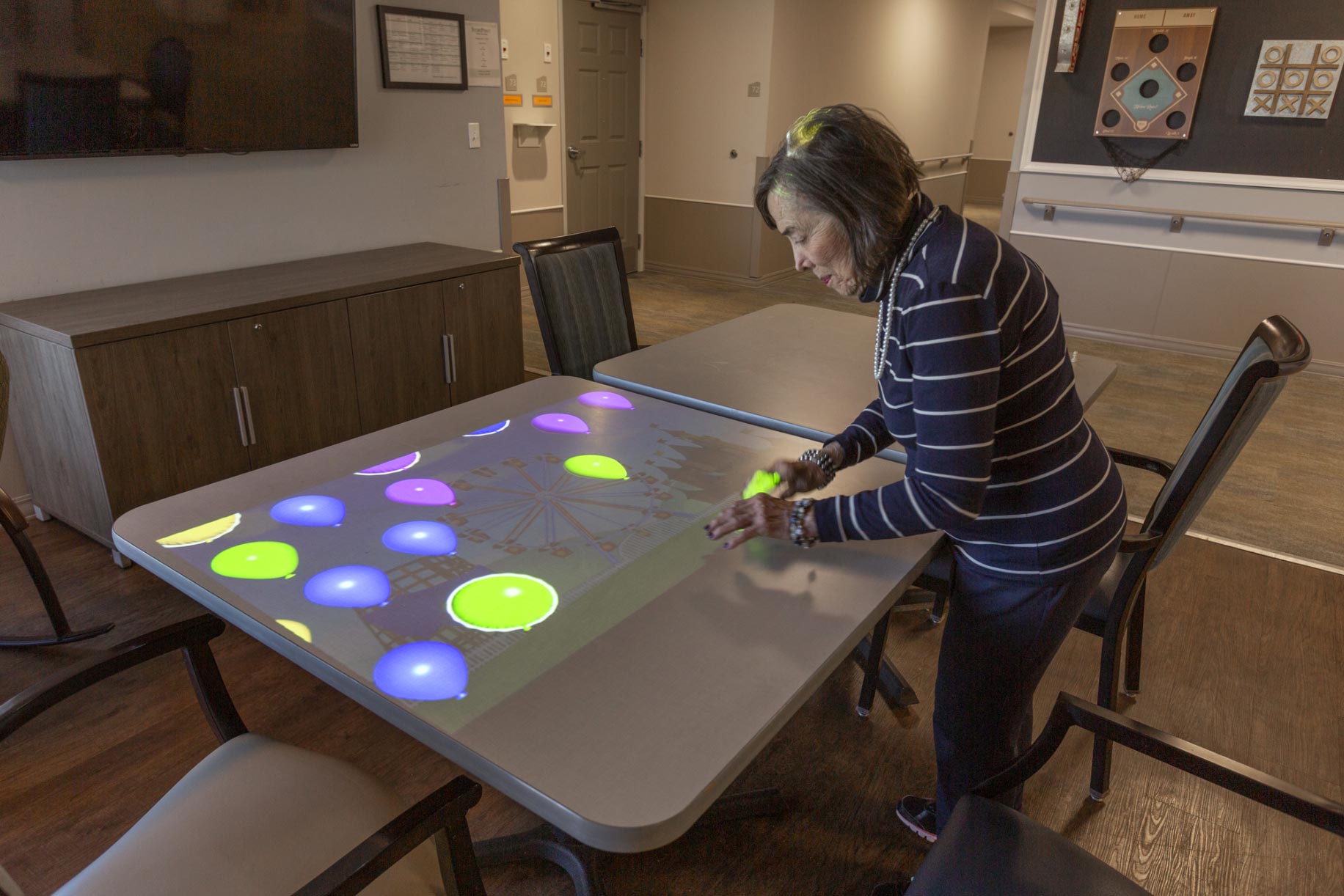Sustaining Family Members with Specialized Alzheimers Care Charlotte Providers
Sustaining Family Members with Specialized Alzheimers Care Charlotte Providers
Blog Article
Producing a Safe and Supportive Setting for Alzheimer's Care
The production of a encouraging and safe setting for individuals with Alzheimer's is extremely important in enhancing their lifestyle. This involves not only physical adaptations within the home, such as reducing threats and integrating acquainted aspects, yet likewise the execution of structured regimens and meaningful activities that deal with their cognitive needs. Understanding the psychological and emotional measurements of treatment can significantly affect their feeling of security and connection. Discovering these multifaceted methods can expose critical insights into efficient caregiving approaches that may transform the everyday experiences of both caretakers and patients.
Recognizing Alzheimer's Demands
Regularly, people with Alzheimer's condition show a series of demands that need customized techniques to care. As the condition advances, cognitive decrease materializes in different ways, impacting memory, reasoning, and also the capacity to do everyday tasks. Caregivers should acknowledge these advancing needs to give ideal assistance and guarantee a better of life for those influenced.
One important element of comprehending Alzheimer's needs is identifying the value of routine and familiarity. People typically find convenience in well established patterns, which can decrease anxiety and complication. Caregivers need to aim to create organized everyday timetables that integrate meaningful tasks lined up with the individual's rate of interests and abilities.
In addition, efficient interaction is vital. People with Alzheimer's may struggle to reveal themselves or comprehend intricate language. Caregivers need to utilize straightforward, clear language, use non-verbal signs, and method energetic listening to promote understanding and link.
Caregivers must urge involvement in community activities or household celebrations, advertising a feeling of belonging and purpose. Understanding these diverse needs is necessary for developing a supportive care atmosphere.
Creating a Safe Home
Producing a safe home for people with Alzheimer's illness is essential to decreasing dangers and promoting self-reliance. Ensure that paths are clear and well-lit, as correct illumination lowers disorientation and improves mobility.
Integrating adaptive functions is also vital. Install grab bars in washrooms and near stairs, and take into consideration utilizing non-slip floor coverings in wet locations. Additionally, using different colors for floors and wall surfaces can aid in differentiating rooms, assisting to minimize confusion.
Experience is important for individuals with Alzheimer's. Individualizing the environment with familiar items and photos can enhance a sense of belonging and protection - Alzheimers Care Charlotte. It is also useful to have actually an assigned area for everyday activities, such as analysis or crafting, which can provide structure to their day
Last but not least, carrying out a secure outside room enables secure expedition while getting in touch with nature. By thoughtfully creating the home setting, caretakers can considerably improve the top quality of life for people coping with Alzheimer's disease.
Enhancing Communication Skills

Non-verbal interaction, including informative post faces, gestures, and touch, plays an essential role in sharing compassion and understanding. Maintaining eye contact and a tranquil attitude can improve the convenience degree of the individual, advertising a sense of safety.
In addition, it is essential to practice energetic listening. This includes being fully existing, showing perseverance, and enabling the person to reveal themselves without interruption. Rep may be essential; caretakers should be visit this web-site prepared to take another look at questions or subjects, as individuals with Alzheimer's might struggle with memory recall.
In addition, using aesthetic aids or signs, such as photographs or acquainted objects, can assist in recognition and interaction. Inevitably, boosting interaction abilities is regarding building trust and producing an environment where individuals really feel heard, valued, and comprehended, therefore enhancing their top quality of life.
Encouraging Social Interaction
Cultivating meaningful social interactions can greatly improve the health of individuals with Alzheimer's illness. Involving with others not just helps battle sensations of seclusion but likewise promotes cognitive feature and psychological health. Structured social activities, such as team video games, arts and crafts, or songs treatment, develop opportunities for locals to link with peers and caretakers, which can bring about boosted mood and decreased stress and anxiety.
Producing a welcoming setting that urges socializing is important. This can be accomplished by setting up public rooms that promote communication, such as comfy seating locations or task areas. In addition, incorporating acquainted and culturally relevant tasks can trigger memories and urge engagement, permitting people with Alzheimer's to feel more connected to their past experiences.
Moreover, caretakers need to be educated to identify and advertise social interaction among residents. Straightforward motions, such as launching discussion or helping with small group conversations, can aid individuals feel valued and consisted of. Regularly set up social occasions must be constant yet versatile, accommodating differing degrees of ability and rate of interest. By prioritizing social interaction, we can significantly improve the lives of those dealing with Alzheimer's, promoting a sense of community and belonging.
Sustaining Caretaker Well-being

To sustain caretakers, organizations ought to use normal training and educational sources to boost their understanding of Alzheimer's disease and caregiving methods. Supplying accessibility to reprieve care services enables caretakers to take essential breaks, reducing tension and tiredness - Alzheimers Care Charlotte. In addition, fostering a neighborhood through support system can help with psychological sharing and the exchange of functional recommendations amongst caretakers, developing a network of mutual support
Mental health resources, such as therapy services, can likewise be crucial in resolving the psychological toll caregiving can take. By focusing on caretaker well-being, we create a more lasting caregiving setting that not just profits the caretakers themselves but also boosts the total Resources top quality of treatment received by individuals with Alzheimer's. Inevitably, sustaining caretakers is an essential part in cultivating a reliable and thoughtful care setting.
Conclusion
To conclude, the production of a risk-free and supportive setting for people with Alzheimer's is necessary to improving their high quality of life. By prioritizing safety with thoughtful layout, cultivating psychological wellness with familiar elements, and advertising engagement via structured routines, caregivers can substantially influence the general experience of those impacted by this problem. Supporting caregiver well-being is crucial, as it inevitably adds to an extra thoughtful and reliable care setting.
Repeating may be needed; caregivers should be prepared to review concerns or topics, as individuals with Alzheimer's may have a hard time with memory recall.

Report this page